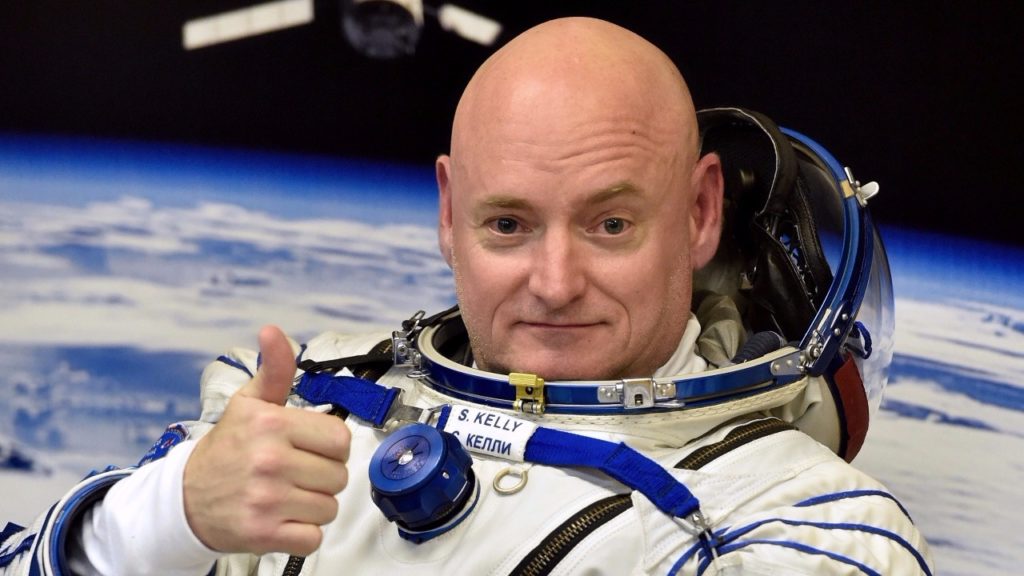Not many people can say what it feels to be in space, much less a year. Astronaut Scott Kelly spent a year living aboard the International Space Station, which sounds like the trip of a lifetime, but a year in space can take a toll on your body, mind and health. That was one of the missions when he was sent to space, to learn how humans can endure a year in space.
LIKE DailyVitamina.com on Facebook! Get Your Daily Vitamin…FOR LIFE!
The 52-year-old astronaut has a brother, Mark Kelly and when Scott left to space they were the same height, but now that he’s come back, he’s two inches taller! Why does this happen? Astronauts get taller in space because of the disks of the spinal column. Gravity causes discs to slightly compress, but in space there is no compression, which causes the discs to expand. This causes the spine to elongate, which causes you to stretch when you’re in space.
Kelly knew all the risks that a year in space could do to his health, but felt it was a privilege that would give him the opportunity to be a part of history and science. “The ability to press our limits with regards to exploration and discovery, I think it’s been a privilege of being a part of that and it’s something that I’m going to miss—I’ve been here a long time, and I’m looking forward to going home,” he said.
Another interesting thing that happens in space is that you can no longer walk around the spacecraft, you float around and this can take a toll on your body. There is no pressure on your legs, hips and spine because you’re weightless, so this leaves your bones weak because of the release of calcium. When this happens you run the risk of kidney stones and breaking your bones. Plus they need to adjust back to the 24 hour light cycle since there is no sunlight in space.
Your heart doesn’t work as hard in space either, which can actually cause it to shrink. As you can imagine, astronauts have balance issues and this is because the inner ear, which is sensitive to gravity, no longer functions correctly, causing them to feel disoriented, space motion sickness and loss of sense of direction. We saw the astronauts land in Kazakhstan and they were being carried everywhere due to this.
In addition, astronauts are exposed to higher levels of radiation in space, so that could lead to cataracts and cancer in the future. Other things that space radiation affect is endothelial cells, which is the lining of blood vessels, which may lead to coronary heart disease.
It will take Kelly some time to adjust back to earth and doctors will keep a close eye on his health as expected. There is so much more that we will learn about the American astronaut whose been in space more than any other space in history. What an amazing 340 days he had in space:
